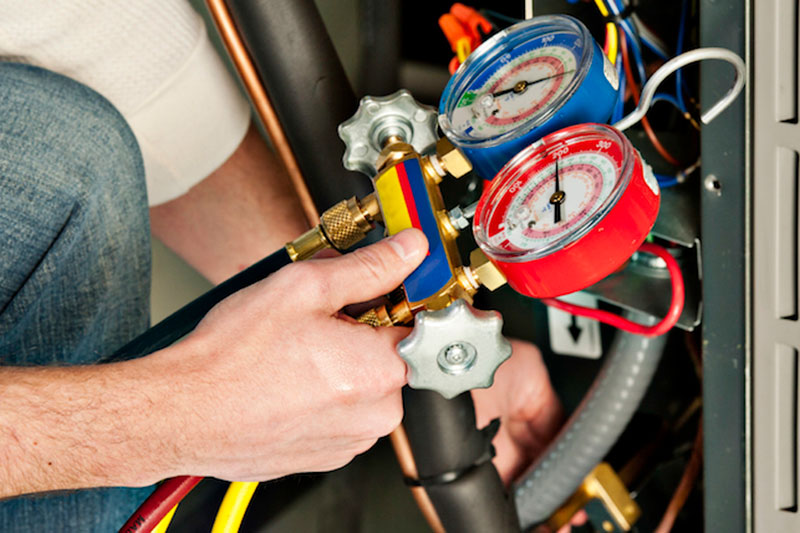
You might not think a lot about how your air conditioner works, but it depends on refrigerant to keep your residence cold. This refrigerant is subject to environmental laws, as it contains chemicals.
Based on when your air conditioner was added to your home, it may require R-22, R-410A or R-32 refrigerant. We’ll review the differences and which air conditioner refrigerants are being phased out in Des Moines, plus how these phaseouts affect you.
What’s R-22 and Why Is It Discontinued?
If your air conditioner was added before 2010, it probably uses Freon®. You can learn if your air conditioner has it by contacting us at 515-278-2900. You can also examine the name plate on your air conditioner condenser, which is found outside your home. This sticker will have info on what model of refrigerant your AC uses.
Freon, which is also called R-22, contains chlorine. Scientists consider Freon to be bad for the earth’s ozone layer and one that prompts global warming. The Environmental Protection Agency, which governs refrigerants in the United States, barred its creation and import in January 2020.
I Have a R-22 Air Conditioner. Should I Replace It?
It differs. If your air conditioning is cooling correctly, you can continue to use it. With yearly air conditioner maintenance, you can expect your system to last around 15–20 years. However, the Department of Energy notes that substituting a 10-year-old air conditioner could save you 20–40% on yearly cooling bills!
If you don’t replace your air conditioner, it can create a problem if you have to have air conditioning repair later on, specifically for refrigerant. Repairs may be higher-priced, because only reduced amounts of recycled and reclaimed R-22 is accessible.
With the end of R-22, many new air conditioners now rely on Puron®. Also referred to as R-410A, this refrigerant was developed to keep the ozone layer strong. As it requires a varying pressure level, it doesn’t match air conditioners that use R-22 for cooling.
However, Puron still has the likelihood to contribute to global warming. As a consequence, it might also ultimately be discontinued. Although it hasn’t been mandated yet for residential air conditioners, it’s expected sometime this decade.
What Refrigerant Will Replace R-410A?
In preparation of the phaseout, some companies have begun using R-32 in new air conditioners. This refrigerant rates low for global warming possibility—around one-third less than R-410A. And it also decreases energy consumption by approximately 10%, according to the Intergovernmental Panel on Climate Change’s Fourth Assessment Report. That’s savings that might be passed on to you through your energy expenses.
Kohles & Bach Heating & Cooling Can Help with All Your Air Conditioning Needs
In summary, the changes to air conditioner refrigerant probably won’t affect you a whole lot until you need repairs. But as we talked about previously, refrigerant repairs may be more costly since there are the low amounts available.
Not to mention, your air conditioner frequently breaks down at the worst time, often on the muggiest day when we’re experiencing many other appointments for AC repair.
If your air conditioner relies on an outdated refrigerant or is aging, we suggest upgrading to a modern, energy-efficient air conditioner. This provides a stress-free summer and may even lower your cooling expenses, especially if you choose an ENERGY STAR®-rated air conditioner. Plus, Kohles & Bach Heating & Cooling has many financing programs to make your new air conditioner fit your budget. Contact us at 515-278-2900 to get started now with a free estimate.
